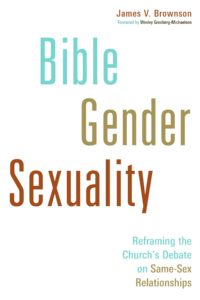This article is part of a progression
I’ve been debating writing this post for a little while now… and it will probably sit in my drafts for a few days before I finish it and/or it sees the light of day…but I feel like it needs to be talked about. First, I would like to say that I’m not advocating that homosexuals (I use this term rather than gay purposefully, and will elaborate on that later) live lives of secrecy and hiding. I am, however, advocating that we stop “coming out”.
This will not be a primarily Christian post, but there does need to be some background rooted in Christian thought (and there will be bits of Christian history); the thrust of the piece, however, will be more humane and all-encompassing. This post is partially a response to Christian’s limited understanding of homosexuality (both in the modern and ancient world). In my review of God and the Gay Christian I addressed the false understanding of homosexuality in the ancient world- namely that it didn’t exist as an orientation like we have today. If more Christian scholars did their proper research (both on the affirming and non-affirming sides) they would find this to be untrue. This misconception in today’s age, combined with the church’s abuse of sexuality throughout history, has left us in a place where we should never be- where homosexuals are required to “come out.”
Let’s take a quick stroll through history. It’s well known that homosexual activities took place in the ancient world. It’s even understood that it was expected of most people to partake in sexual activity with both genders. What we fail to recognize is that there were cases of homosexual exclusivity in the ancient world. Many assert that the idea of a homosexual orientation/preference (that is- people who are attracted exclusively to the same sex) is a modern invention and there was no understanding of such in the ancient world where sexual activity was more widely accepted.
Unfortunately for them, this is not the case. We see in Plato’s Symposium and Phaedrus’ Fables accounts (just to name two) of humans being created as homosexuals. Plato described each person as once being two people and then split, thus everyone is, literally, searching for their other half throughout life. His account states that those with both a male and female half originally became heterosexual couples; those with both male or both female parts became homosexual couples. Phaedrus describes Prometheus making humans, going out and getting drunk, and coming home and placing the opposite genitalia on people on accident. Those people then became homosexuals.
While those of the past most likely did not take these as fact, they did, however, have an understanding of homosexual preference, and these writings are proof of that. We also have accounts of famous individuals with exclusively homosexual preferences, including, but not limited to Alexander the Great and Zeno of Citium (who, consequently, founded Stoicism, a Hellenistic philosophy that later condemned homosexuality (and sometimes sexuality in general) as contrary to nature, and who’s thoughts and beliefs are often referenced by Paul in his epistles).
What happened, then, to get us from a place where sexuality was embraced to a place where sexuality, especially homosexuality, is viewed negatively? Two words- the Church. Okay, so it isn’t entirely the church’s fault, but they are very much to blame. The early Christians, and therefore their derivative beliefs, as well as contemporary worldviews (including, but not limited to Stoicism), believed that all forms of sex were bad. They were not only outspoken against homosexuality but also heterosexuality, viewing it as a vice. After a while, procreative sex was allowed. This view, which started within Christianity, eventually became reflected in the law of Rome. Essentially, any form of sex (hetero or homo) that did not have the direct purpose of making a baby was frowned upon.
When the Roman empire crumbled, the world entered a time of more acceptance of sexuality. It even seems that, during this time, homophilic literature was developing amongst clergymen. It wasn’t until nearly the thirteenth century that homosexuality was widely frowned upon again. During this time there was also much persecution of Jews, Muslims, and other heretics. It’s interesting to note that the idea that homosexuality was viewed in same vain as heterosexual anal intercourse. Anything non-coital was viewed as against “nature” (an idea they borrowed from the Hellenistic world) and was wrong. Still, though, the discussion was framed around the action, sodomy, that turned the person into a sodomite. For a time, sodomy was a criminal offense; however, the reason shifted from that of religion to that of medicine, chiefly psychology. Ultimately, though, the psychology found some interesting things.
As noted above, the concepts were originally attributed to the actions. However, the psychologists of the 19th century were finding, again, that there was more to it than just an action. Someone could desire to engage in sodomy but never do it. They then couldn’t be called a sodomite, so what were they? It was during this time that the term “homosexual” was coined. It was also during this time that the laws against sodomy were repealed throughout most of Europe. That did not, however, mean that homosexuality was suddenly good again in the eyes of the world. Even though it was understood that homosexuality was not chosen, they still saw it as something that needed to be fixed. This was, still, grounded in the idea that any sex that was not for procreation was bad, or contrary to nature. It wasn’t until the 1900s when people began to open back up to the idea of sex for pleasure (as it was intended) as well as sex for procreation as being okay.
So here we are today, in a world where homosexuality is still fighting to be given due respect. Somewhere along the way (most likely around the time that all sex was frowned upon) a view of heteronormativity developed that is still pervasive today. Before then it could be said that the world had an idea of sexualnormativity, people were sexual beings (some liking just men, others liking just women, and others liking both). Also, somewhere along the way, the term “homosexual” began to be frowned upon by homosexuals. It seems that it was mostly disliked due to its clinical sound. They re-purposed the word “gay” to mean homosexual. Somehow, in contrast, heterosexuals began to be known as “straight”.
This is where the problem with coming out comes in. This whole gay/straight contrast (and to a lesser extent homosexual/heterosexual) plays right into the inbred heteronormativity. Not until we stop contrasting between gay and straight (which the word itself insinuates is the “norm”) and allow people just be will we be able to return to a sexualnormativity perspective of humanity, and not care whether someone is homosexual or heterosexual. That starts with stopping using the words gay and straight and, if necessary, returning to homo and heterosexual but, ideally, not labeling people at all.
Apart from ethnicity (which is mostly based on someone’s geographical cultural roots (true ethnic identities that is; anything based on someone’s appearance is a distortion of such), and is becoming less of an issue as the world becomes smaller, and isn’t really that comparable to the issue but I figured people would bring it up so I wanted to nip it in the bud), there is no other born preference of a person that we label and categorize as we do homosexuality. Those who like horror movies vs comedies don’t choose which movies they find enjoyable, but we don’t label them. Those who like pop music vs rock music don’t choose which music they enjoy, but we don’t label them. Those who like sour things vs sweet things don’t choose how their taste-buds react, but we don’t label them. (Vegetarians and the like are not included because they do choose to only eat those types of foods, and the social labeling of jock/geek/prep are based on people’s chosen actions, not their born preference (albeit, their choices are based on their preferences, but there are many who have preferences in various groups but choose to be a part of one particular group)).
Why, then, do we feel the need to classify someone’s sexuality as heterosexual or homosexual? What’s the point, and why does it matter? In all reality, it doesn’t. Whom I love is irrelevant to you unless we, together, choose to make it relevant. Likewise, whom you love is irrelevant to me unless we, together, choose to make it relevant.
What am I trying to say here? The short of it is this- nobody should ever have to “come out.” There should never be a point in one’s life when they sit there, afraid to tell their parents/friends that they aren’t straight, afraid of their parents’/friends’ disapproval or disappointment. The only reason this happens is because they are expected to be straight unless they say otherwise. But why? Why can’t we be expected to be sexual (just like we’re expected to be hungry, and expected to enjoy at least some form of music or movie (or various entertainment)) and then allow the details of what form that takes come out as we get to know the person. You don’t sit down and say, “Mom, Dad, I don’t like action movies, I like comedies” with the fear that they will be disappointed. Why? Because the movies you like aren’t important to them. You are. That’s how it should be with one’s sexuality.
Unfortunately, though, it will never reach that point until we stop making a big deal of it. Until we stop using polarizing words like gay and straight there will never be a cultural understanding of homosexuality as nothing more than someone’s sexual preference. Until we stop making a big deal out of “coming out” we will not be able to rid society of its heteronormativity. Until we allow ourselves to just be (whether that’s homosexual, bisexual, heterosexual, transgender, etc.), and reveal the details of who we are to people as we get to know them (like revealing the food we like) simply by the way we talk about/interact with people of the various genders there will never be an equal playing field between the various forms of sexual preference. As long as there is a distinctive moment when you make it known that you’re “different” (with all the fear that comes with that) it will never be seen as anything less than not normal.
Lest anyone try to accuse me of asking homosexuals to live in secret, or not be confident in who they are (I debated using the word “proud” based on the prevalence of pride rallies and parades but decided “confident” is a better term) I need to state, point blank, that that is not what I’m advocating. In reality, simply living life without “coming out” is showing more confidence in yourself because you are being yourself- nothing more, nothing less. You aren’t different; you don’t need to differentiate yourself from heterosexuals. You’re just living as yourself- someone who happens to like the same (or both) genders. And being yourself will not keep it a secret because, as you are yourself around others and live freely, without the fear of being seen as “different”/”abnormal”/”wrong”, they will learn it when they need to know it. It’s not their business either way unless you want it to be.
“But,” some of you may be saying, “the world we live in today isn’t ready to stop viewing it as something less than normal. They aren’t ready to return to sexualnormativity.” There is a common saying, and a paraphrase of something I’ve heard countless times, that I’d like to use to stop you in your tracks. 1) “Dress for the job you want, not the job you have.” 2) The only way to gain the attribute you desire (be it confidence, strength, honesty, etc.) is to act as if you already have it. These things show us one thing- nothing changes without starting somewhere. You’ll never get to the top of the mountain until you start the climb. You’ll never be confident until you expect yourself to be confident. And we’ll never see a return to sexualnormativity until we expect, and begin, the return to sexualnormativity. And that begins with you and me, right here, right now, refraining from using polarizing words like “gay” and “straight”, refraining from labeling people based on their sexual preference, and refraining from feeling the need to “come out” (and stop expecting others to do it as well).





